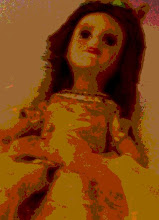Came across a blog awhile back about whether there were any modern science fiction classics, that is, science fiction books (rather than movies) that if you mentioned it to an SF reader, they would be almost guaranteed to know the book and probably to have read it. Lots of old ones, but what about in the last half of the 20th C or since? if I say "Pip and Flinx", how many SF readers would recognize the characters and the books they are from? What about Helva, the Ship Who Sang, or the Dragonriders of Pern (though they slide toward fantasy most of the time), but there are plenty of memorable Fantasies.
The question came up again in a discussion at home, and it came up that we'd have a hard time testing even if we thought of a few candidates: how would you know, unless you were involved in discussion outside your local reading group or book club? classices are not always 'favorites" either, as the NY Times best seller lists show. Classics, in the sense I refer to here is more about recognizable quality and long-term memorability and value, that ensures the next generation reads it, too.
With no answers, my thoughts turned to what exactly would define a classic in a genre fiction? What kind of features would make it modestly popular, over more than a single generation, memorable and recognizeably good quality such that a teacher would bring it to the attention of their students? Here are some of my thoughts:
* Well written with a distinctive style, voice
* Helps define the genre or a subgenre, perhaps the first to effectively capture a subgenre and leads the way to many of the same sort, poor imitations of the first.
* A story that a wide audience can relate to (typically relatively basic, even obvious in essence with classic themes of life, family, friends, good and evil, challenges to basic values, but portrayed in such an interesting manner that adults and teens can read and re-read it and find something new to learn and understand, complex enough in content along the course to retain interest.
* Strong emotional content (fear and hate, love and hate, obsession, jealousy, and fierce loyalty
* A new twist, setting, or focus
* Larger than life characters that none the less represent the human condition, with flaws and weaknesses in the same proportion as strength and nobility and purpose.
* In particular for a given genre, it should be an archtype of the genre. For science fiction, a fictitious, pseudo, or future predictive science that is not just present but a key story element.
The last may be an answer to why no science fictions obviously fall into this category: So many kinds of science and science fiction are available for exploration, that finding a representative one may be hard for subgenre's whose true models were written more that a century before: time travel, vampires, monsters, space fiction, and others. A book that tries to address several of the options at once becomes unbelievalbe, a farce or parody, although that can be a kind of classic of its own. Who hadn't heard of the Hitchhikers Guide, even before the movie?
Even if no book achieves it all, I figure any book that aims in the right direction will at least have a great chance at publication success.
Subscribe to:
Post Comments (Atom)

No comments:
Post a Comment